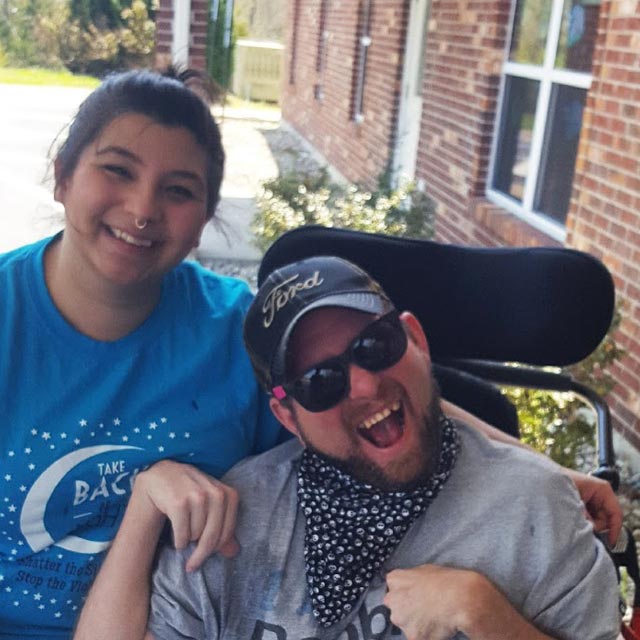On the Wings of a Pony Bird
Pony Bird was a magical flying pony that gave a young boy a fantasy flight in the 1975 children’s book of the same name. It’s the freedom that the parents of Philip Hockensmith may have dreamed of for their boy, who was born in 1971 and soon after diagnosed with cytomegalovirus, a virus that would leave him unable to ever walk, talk, see or hear. Incapable of providing the round-the-clock medical support he required, the Hockensmiths placed Philip in a specialized facility, all the while envisioning a place that would care for more than his physical needs.
The result was the creation of Pony Bird by the Hockensmiths and nine other families in 1977 – a care provider for non-ambulatory individuals with profound mental and physical disabilities. “We provide acute medical support, and so much more,” says Jennifer Adams, Director of Development. “It’s a warm, welcoming place, full of love and compassion and focused on inclusion, empowerment and treating everyone as the special person they are. It’s a home.”
Today, Pony Bird operates six homes in Mapaville and Desoto, Missouri, for 85 to 100 residents, currently ranging in age from 17 to 71. It is the only private nonprofit in the region caring for non-ambulatory, significantly disabled individuals of all ages. The organization also provides day services and respite care at each site, as well as individualized support living, allowing people to receive support services in their own home.
Pony Bird is an endowment client of YouthBridge, finding a kindred spirit with the foundation, says Adams. “YouthBridge has a similar legacy as Pony Bird and a mission aligned with ours to bridge service gaps, especially for children and youth.”
Adams explains that Pony Bird provides a home for young people that otherwise would end up in nursing facilities, where the majority of the population is elderly. “We are very intentional in setting up resident placement by age range and creating active environments where young people can thrive,” she says. Most will find a permanent home with Pony Bird.
Ron’s story is an example of Pony Bird’s commitment to empowering each person as an integral member of the community. Now 42, Ron began receiving Day programming through Pony Bird after a traumatic brain injury left the high school senior with paralysis and limited verbal communication. While the doctors told Ron’s family he “would not be able to do anything,” these words were not part of his mental vocabulary. Ron worked with his Pony Bird therapists on increasing independence and physical capabilities, as well as his communication skills and interaction with others.
Ron eventually graduated from high school and began volunteering at local hospitals and the Red Cross. In 2014, a year before his mother passed, he became a resident of the Pony Bird community, “bringing joy to everyone around him,” says Adams. His cousin Michelle, now his guardian, regularly visits Ron and the others at Pony Bird. “They’re family to us,” says Michelle.
Family is everything, says Adams. Residents’ family members are able to visit at any time of the day or night, and for the roughly 40 percent that are wards of the state, they are essentially “adopted” by other families, “as well as our staff, of course,” she says.
Separation from families has been the hardest part of the pandemic for Pony Bird, says Adams. With residents in the highest risk category, the homes have had to suspend community outings, respite and day services, and family visits for a time. “We’ve done our best to keep everyone connected through FaceTime and some outdoor visits, when weather permits. It’s been a struggle, but we’re weathering the storm.”
If you would like to donate or have any questions about this organization, please contact Allison McDonald.
